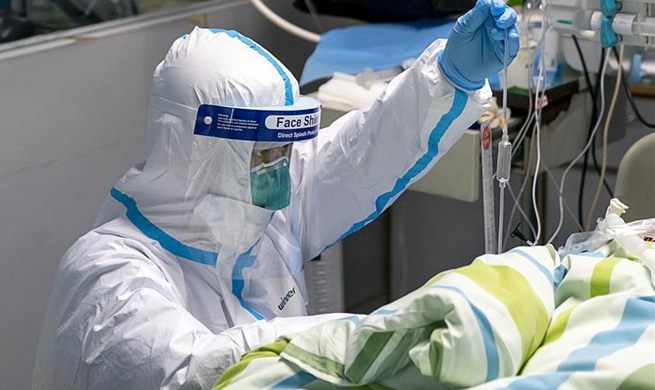CHICAGO, Jan. 25 (Xinhua) -- A study in mice by researchers at Washington University School of Medicine in St. Louis suggests that high-protein diets may lead to more plaque in the arteries; spur unstable plaque, the kind most prone to rupturing and causing blocked arteries.
The researchers studied mice fed a high-fat diet to deliberately induce atherosclerosis, or plaque buildup in the arteries. Some of the mice received a high-fat diet that was also high in protein. And others were fed a high-fat, low-protein diet for comparison.
The mice on the high-fat, high-protein diet developed worse atherosclerosis: about 30 percent more plaque in the arteries than mice on the high-fat, normal-protein diet, despite the fact that the mice eating more protein did not gain weight, unlike the mice on the high-fat, normal-protein diet.
"In mice on the high-protein diet, their plaques were a macrophage graveyard," said senior author Babak Razani, an associate professor of medicine at the university. "Many dead cells in the core of the plaque make it extremely unstable and prone to rupture. As blood flows past the plaque, that force - especially in the context of high blood pressure - puts a lot of stress on it. This situation is a recipe for a heart attack."
To understand how high dietary protein might increase plaque complexity, the researchers studied the path protein takes after it has been digested: broken down into its original building blocks, called amino acids.
They found that excess amino acids from a high-protein diet activate a protein in macrophages called mTOR, which tells the cell to grow rather than go about its housecleaning tasks. The signals from mTOR shut down the cells' ability to clean up the toxic waste of the plaque, and this sets off a chain of events that results in macrophage death.
The researchers found that certain amino acids, especially leucine and arginine, were more potent in activating mTOR, derailing macrophages from their cleanup duties, and leading to cell death than other amino acids.
"Leucine is particularly high in red meat, compared with, say, fish or plant sources of protein," Razani said. "A future study might look at high-protein diets with different amino acid contents to see if that could have an effect on plaque complexity."
"This work not only defines the critical processes underlying the cardiovascular risks of dietary protein but also lays the groundwork for targeting these pathways in treating heart disease," he added.
The study was published Thursday in the journal Nature Metabolism.













